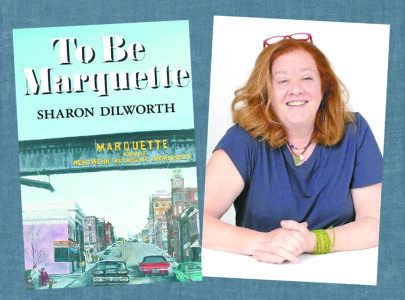Hunting to help
Michigan hunters to make record venison donation

A buck is seen. Michigan hunters have the option to take their deer to participating processors throughout the state and donate from one pound to an entire deer to be processed into venison burger to be donated to local food pantries and food banks. (Photo courtesy of Michigan DNR)
MARQUETTE — The holiday season is a time for giving and now hunting season can be too.
As Michigan deer hunters return from the woods and take their deer to be processed, they also have the option to donate venison to those in need.
Hunters are on track to donate over 58,000 pounds of venison and $100,00 to Michigan Sportsmen Against Hunger, a nonprofit partnership between the Michigan Department of Natural Resources, the Food Bank Council of Michigan, homeless shelters, food pantries, meat processors and deer hunters.
“We started the program back in 1991,” said Dean Hall, executive director of MSAH. “It’s all about hunters getting together to share their harvest to help those who are food poor.”
According to the Food Bank Council of Michigan, 16% of households in Michigan struggle to put food on the table and 21% of children don’t know where their next meal will come from.
The projected amount of donations to be made this hunting season is enough meat for 232,000 meals.
Hunters can choose to donate a pound or more of their deer when they pay for processing or donate their entire deer to be processed at no charge. Participating processors in the U.P. are Love Farms & Processing in Rudyard, Maurer’s Little Meat shop in Sault Ste. Marie, Soderman’s Meat Processing in Gladstone and Viaus Market in Escanaba. To view a full list of processors throughout the state, visit sportsmenagainsthunger.org.
“What happens is all that processed venison becomes processed venison burger and it goes to the community food banks, shelters and pantries that are close to and working with that processing facility, so it all stays in the community,” Hall said.
While dry and canned goods are plentiful in food pantries, meat is rarely donated, Hall said.
“The food banks, shelters and pantries, meat is a commodity that they have a very hard time getting. It’s very expensive; they really can’t afford it at times,” Hall said. “We’re really fulfilling a responsibility that hunters have always had through time — even back in Native American Indians — they would go out in the field to hunt and help provide for those who couldn’t provide for themselves within their communities and their villages, and that’s basically what we’re just carrying on as hunters.”
Since the start of the MSAH, over 750,000 pounds of ground venison or enough meals to serve over 2 million across every region of the state have been donated.
Even just 1 pound of meat can go a long way, Hall said.
“We’re not asking hunters to donate their only deer or even large portions of the only deer they might get a year because they want to feed their families too,” he said.
But if hunters have more than enough meat, he hopes they will consider making a small donation that can help many.
“If you take 1,000 pounds of venison burger, you have 1,000 people that donate 1 pound each, that 1 pound of venison burger when you put it in something like a stroganoff, spaghetti, tacos, anything like that to help stretch out a meal, it will feed 4,000 people,” Hall said.
Monetary donations can also be made to the MSAH by visiting its website. Funds are also collected with the purchase of hunting and fishing licenses. In 2005, the Sportsmen Against Hunger Fund was established and allows hunters to donate when they buy a license. Since the fund’s establishment more than $685,000 has been donated and used to reimburse meat processors.
Trinity Carey can be reached at 906-228-2500, ext. 206.


